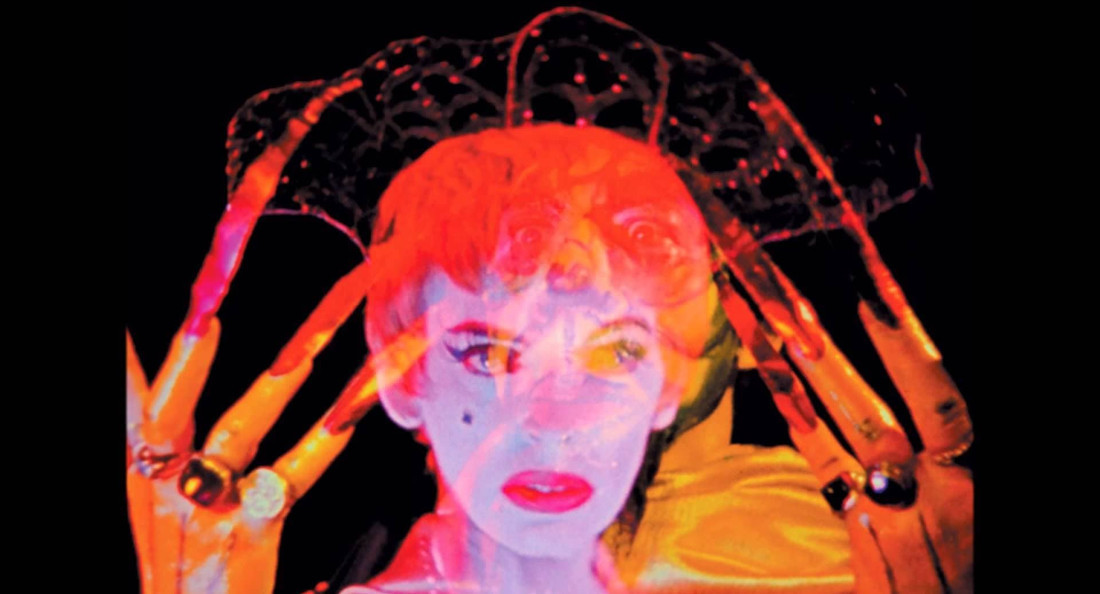Spooky action
Cinematheque presents a survey of Kenneth Anger films
The Dave Barber Cinematheque will honour late avant-garde filmmaker Kenneth Anger with a survey of his works on Oct. 28.
Ceremonies of Light: The Films of Kenneth Anger features Inauguration of the Pleasure Dome (1954), Scorpio Rising (1963), Invocation of my Demon Brother (1969) and Lucifer Rising (1972). The screening is curated by Cinematheque programming director Jaimz Asmundson and will be introduced by Murray Leeder, a research affiliate at the University of Manitoba and lecturer at the University of Winnipeg.
Anger, who died in May at the age of 96, remains a towering figure in underground film circles for crafting a distinct and eccentric style that drew from the occult, queer culture and pop music. He also wrote Hollywood Babylon, his sensationalist and often apocryphal history of early Hollywood.
Asmundson says Anger’s impact is felt across styles and genres.
“His groundbreaking filmmaking aesthetics, such as editing techniques, experimental structure and his tackling of taboo subjects, were very unlike anything else at the time, and his work has gone on to be a huge influence on generations of filmmakers and popular culture,” he says in an email to The Uniter.
Anger’s legacy is evident in the emerging queer experimental cinema of the 1960s, as seen in the works of artists like Jack Smith and Andy Warhol, whose styles can be traced to Anger’s pioneering forms. Beyond the avant-garde, Anger’s work has wide-reaching influence. Director David Lynch is often cited as a notable disciple of Anger’s oeuvre.
“His importance as an experimental filmmaker can be charted in a couple of different ways. One that’s quite noteworthy is in the use of music,” Leeder says.
“As early as the ’40s, his films play as sort of proto music videos, in that he’ll just put pop songs on top of things. I’m sure he did not ask anybody’s permission. But he’ll play pop songs beginning to end over completely different imagery.”
Ceremonies of Light is presented in conjunction with Undead Archive: 100 Years of Photographing Ghosts, a multi-venue exhibition curated by Dr. Serena Keshavjee, an art-history professor at the University of Winnipeg.
The exhibition is inspired by Winnipeg’s fabled paranormal roots, particularly the experiments of physician T.G. Hamilton, who hosted famous séances at his Henderson Highway home. Hamilton’s exploits drew international attention, including from Sir Arthur Conan Doyle, a notable spiritualist, who attended one such session. Hamilton gained renown for his spirit photography, aimed at substantiating the presence of apparitions.
Anger shared this passion for the supernatural and was a devoted follower of occultist Aleister Crowley. This infatuation is reflected in the themes of Anger’s work and his approach to filmmaking, which is executed with a ritualistic flair.
“There’s the idea of cinema being an occult medium,” Leeder says, adding that the Anger survey “seemed like a pretty natural fit to slide into the broader programming around the Undead Archive.”
As Asmundson notes, the exhibition highlights Winnipeggers’ fascination with the paranormal and the occult on a local scale, inspiring generations of artists and filmmakers.
“I like to think that Kenneth Anger would have been aware of and inspired by the Hamilton House ectoplasm photos, which brings this screening full circle in an exciting way,” Asmundson says.
The films will be screened on 16mm, adding a dimension of tactility and history to the program.
“Part of the magic of watching film on film is that the film’s exhibition history is permanently embedded within the imperfections of the celluloid ... and screening the films, with the encapsulation of that history within the celluloid, is like an ephemeral magical ceremony unto itself,” Asmundson says.
Ceremonies of Light: The Films of Kenneth Anger screens on Oct. 28 at the Dave Barber Cinematheque. The four-film program starts at 7 p.m. and is pay-what-you-can.
Published in Volume 78, Number 07 of The Uniter (October 26, 2023)







